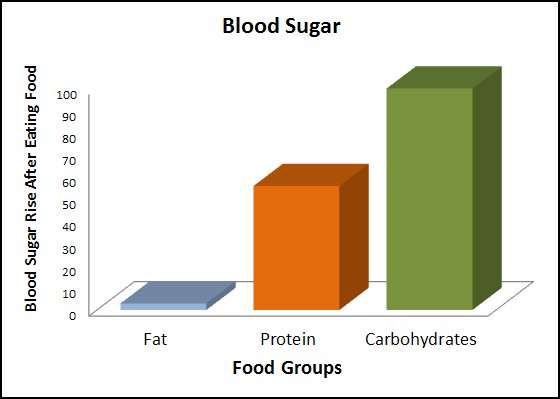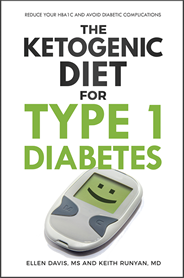Controlling Diabetes
Controlling diabetes is possible when patients are given correct dietary advice. The evidence for the use of a ketogenic diet to treat diabetes continues to grow. I am encouraged that in 2019, Tracey Brown, the new CEO of the American Diabetes association seems to be open to using a low-carb diet to manage diabetes. I sure hope that signals some progress at the ADA for helping people with diabetes choose the most effective treatment plan.

This recent study by Feinman et al. discusses 12 points of strong evidence on why a low carbohydrate, ketogenic diet is THE BEST treatment for controlling diabetes. It's difficult to imagine who could doubt the evidence after reading this paper. The twelve points discussed include:
- High blood sugar is the most important factor of diabetes. Reducing carbohydrate intake has the greatest effect on decreasing blood glucose levels.
- During the last 40 years of rising obesity and type 2 diabetes rates, caloric increases have been due almost entirely to increased carbohydrate consumption.
- Benefits of carbohydrate restriction are viable even without weight loss.
- Although weight loss is not required for benefit, no diet is better than carbohydrate restriction for weight loss
- People with type 2 diabetes stick to a low carb diet just as well as any other diet.
- Replacement of dietary carbohydrate with protein is generally beneficial.
- Dietary total and saturated fat do not correlate with risk for cardiovascular disease.
- Triglyceride and cholesterol levels are driven by dietary carbohydrate more than by fat intake.
- The best predictor of complications in patients with type 2 diabetes is blood sugar control, as shown by studies which look at HbA1c results and disease progression.
- Dietary carbohydrate restriction is the most effective method of reducing serum triglycerides and increasing HDL cholesterol.
- Patients with type 2 diabetes on low carb diets are able to reduce and frequently eliminate medication. People with type 1 usually require lower amounts of insulin.
- Intensive drug treatment for lowering blood sugar causes side effects and increases hypoglycemia. The use of dietary carbohydrate restriction to do the same has no side effects.
Additional Evidence on Ketogenic Diets and Controlling Diabetes

In 2016, there have been over 50 studies done which demonstrate that a low carb, ketogenic diet is a perfect choice to improve the lives of all diabetics.
- A ketogenic diet improves blood sugar control and reduces insulin needs for both Type 1 and Type 2 diabetics. Reducing blood sugar and glycemic control is the primary objective for achieving overall health for not only diabetics, but for anyone with elevated sugars. Ketogenic diets are so effective that diabetic medications of the patients must often be reduced.
- Lowering average blood sugar levels lowers hemoglobin A1c (HbA1c) which is a marker for inflammation, advanced glycation products and heart disease. Higher hemoglobin A1c levels correlate strongly with heart disease and disease mortality rates.
- Ketogenic diets are very effective for weight loss. Hunger is reduced, dieters find it easier to stick to the plan, AND the beneficial health effects of a ketogenic diet do not require weight loss. Health markers are improved eating a low carb diet even if no weight loss occurs.
- Substituting the consumption of fat for carbohydrate is generally beneficial for markers for and incidence of coronary heart disease. In other words, eating more fat and less carb increases HDL cholesterol, and lowers triglycerides. The closer the ratio of these two markers is to 1.0, the healthier the heart.
- A low carb, ketogenic diet improves the features of metabolic syndrome. Metabolic syndrome is frequently the first warning of the development of Type 2 diabetes, and a ketogenic diet has been shown to reverse it in many studies.
- Ketogenic diets reduce liver damage and reverse insulin resistance, reverse kidney disease, and reduce the high blood sugars which contribute to infection susceptibility, and which cause diabetic nerve and eye damage.
If you have diabetes, I encourage you to look at the studies
and the facts and decide for yourself.
All of my books are available in electronic PDF, and now in paperback on Amazon!
 |
 |
 |
|
Buy paperbook on Buy paperback on Amazon Buy the e-Book via Paypal |
Buy paperback on Buy paperback on Amazon Buy the e-Book via Paypal |
Buy paperback on Buy paperback on Amazon Buy the e-Book via PayPal |